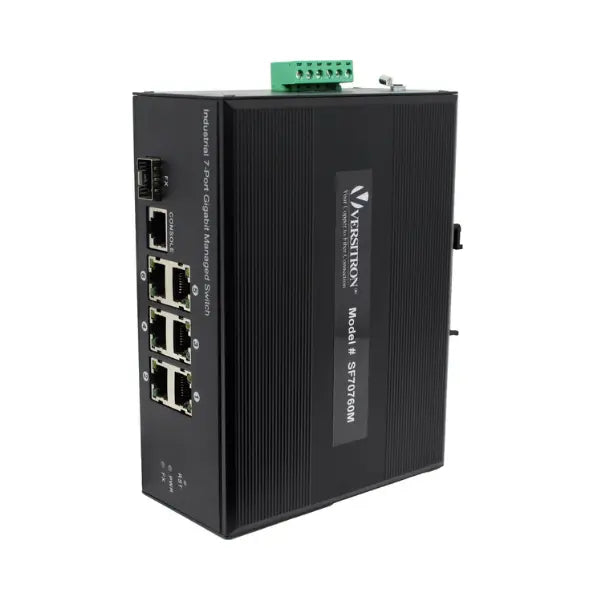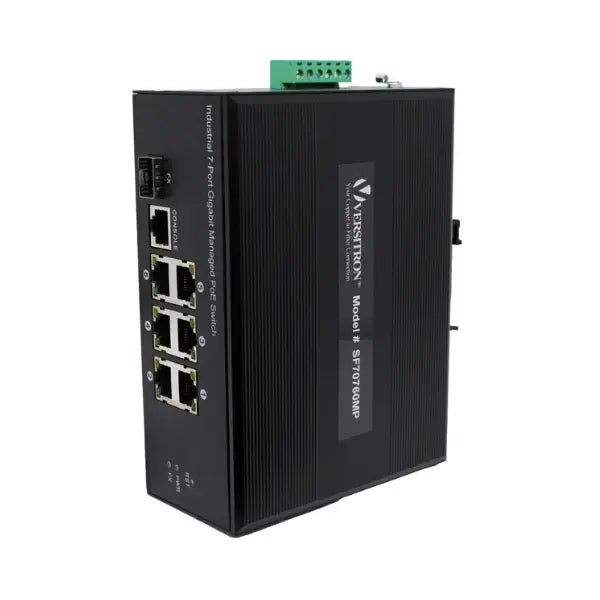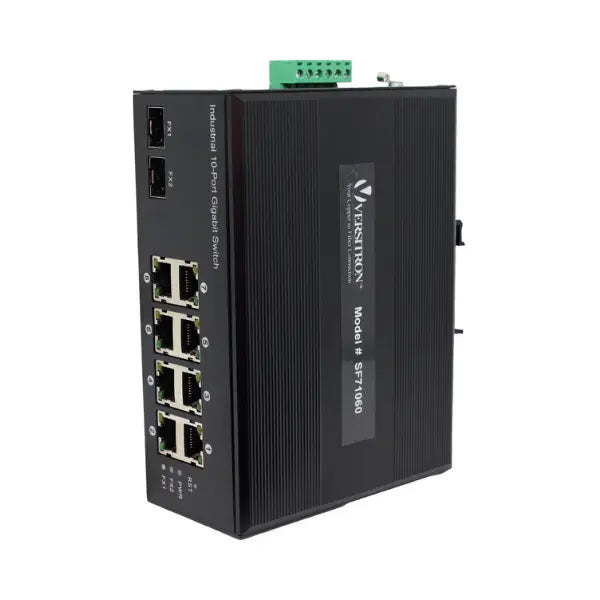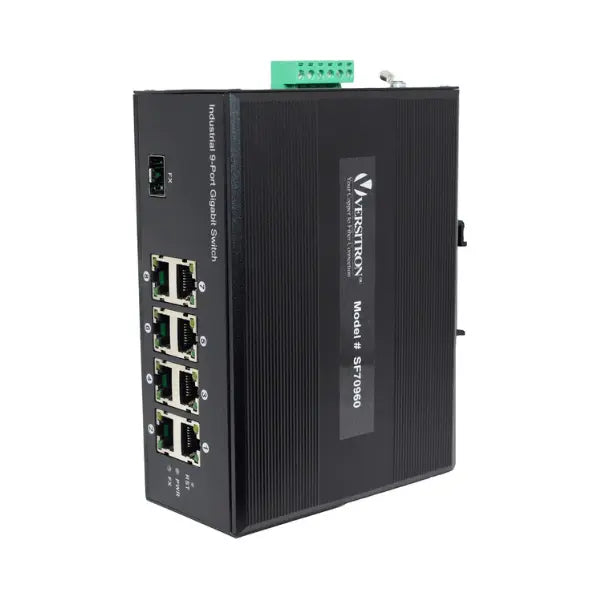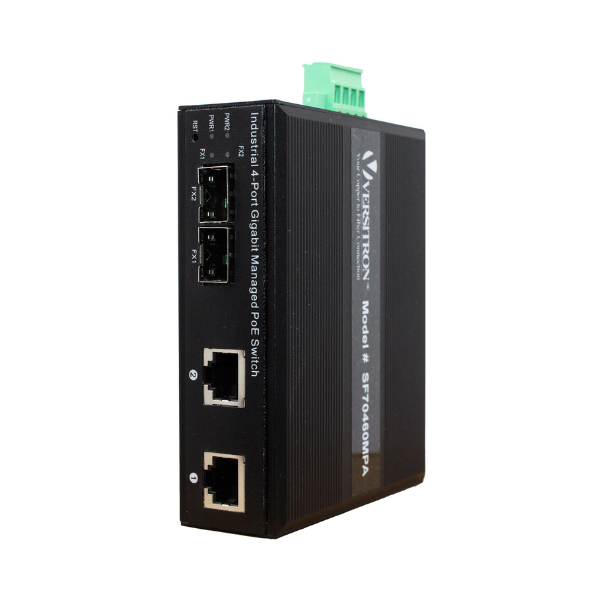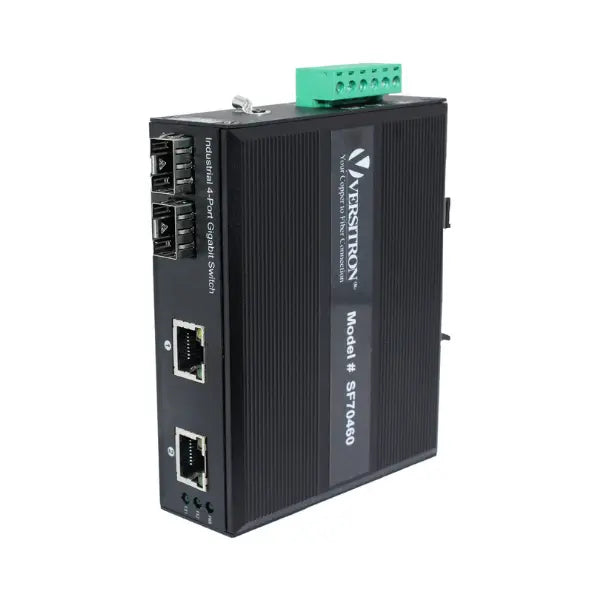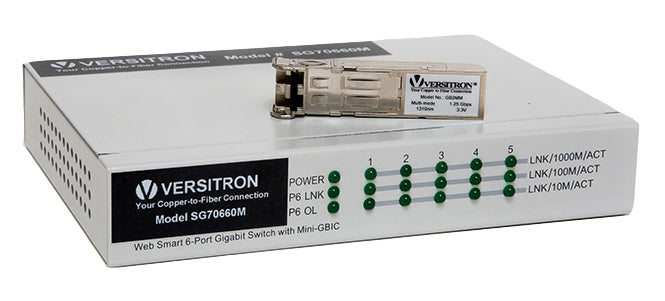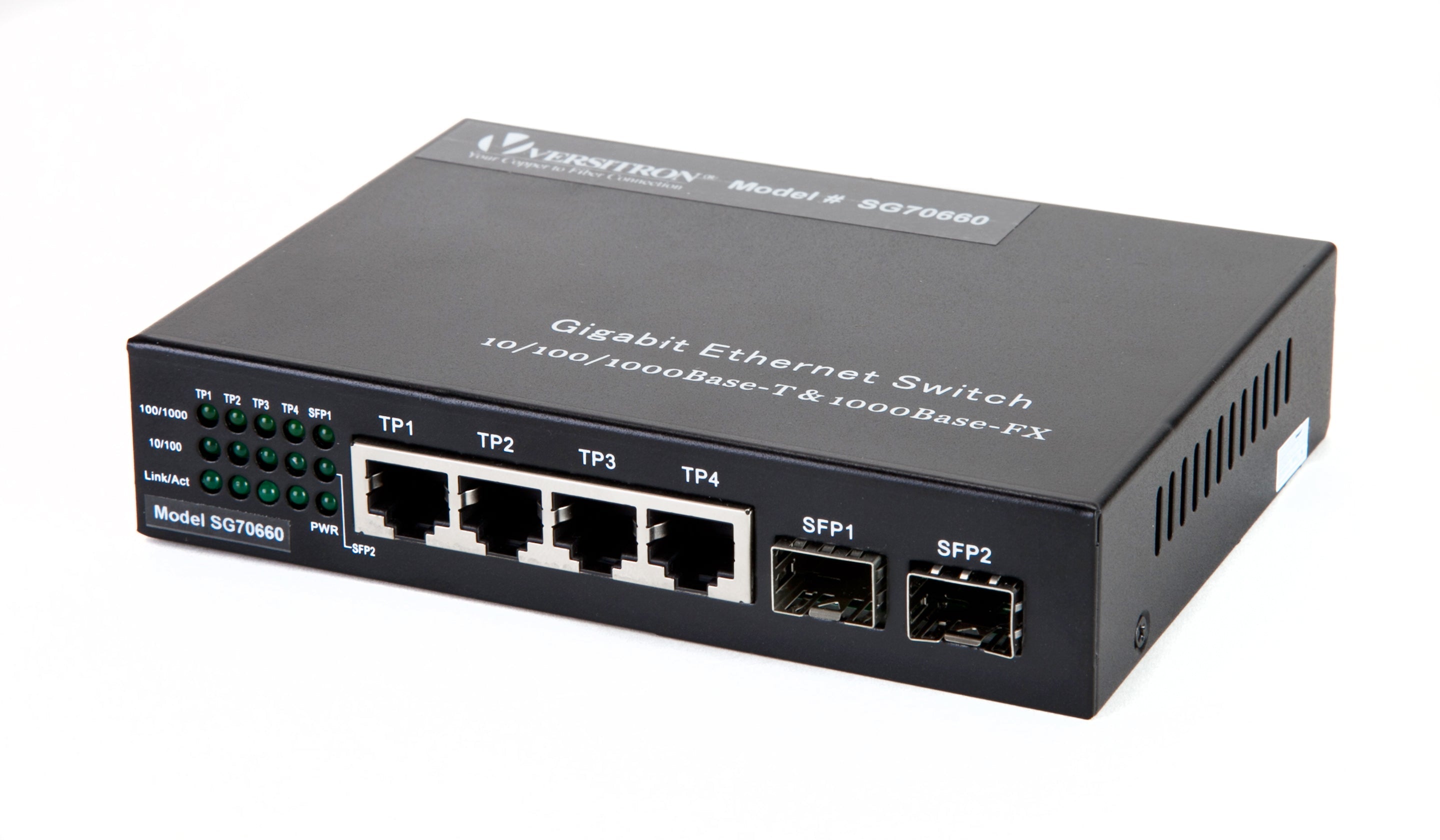A data center is a unit which controls all digital data transactions in IT companies. It is a convenient option, as a huge amount of data is processed, analyzed, used, and stored on any given day. A modular data center is a portable version of this data center, which makes this whole data process flexible and economical. There are many benefits these modular centers offer and hence are gaining traction in the market. One of the biggest benefits is reduced power consumption, all thanks to fiber optic switches and low power PoE devices. This is a huge factor for small and medium businesses to get their own data center. This post discusses the benefits of modular data centers and how fiber optics play a vital role in it.

The Evolution of Modular Data Centers
The evolution of modular data centers has seen advancements in efficiency, flexibility, and scalability. It started with containerized data centers, progressed to integrated modules, and then embraced standardization and modularization. The rise of edge computing led to micro data centers, and now, modular building blocks facilitate rapid deployment and support hybrid cloud architectures. These advancements have improved deployment speed, scalability, and cost efficiency to meet the evolving needs of businesses and technologies.
What is Modular Data Center?
A modular data center refers to a pre-fabricated, self-contained unit that houses all the necessary components of a traditional data center, such as servers, storage systems, cooling infrastructure, power distribution, and networking equipment. It is designed to be deployed quickly and easily, providing a scalable and flexible solution for data center needs.
Example of a Modular Data Center: An example of a modular data center is the "Microsoft Azure Modular Data Center" (MDC). It is a portable data center solution that can be deployed in remote locations or areas with limited infrastructure. The MDC is a fully enclosed, weather-resistant unit that contains all the necessary components for data processing, storage, and networking. It is designed to be rapidly deployed and can operate in extreme environmental conditions.
What are the Types of Modular Data Centers?
There are different types of modular data centers based on their deployment and construction approach:
- Containerized Modular Data Centers: These are built within shipping containers or similar enclosures. They are pre-fabricated and can be easily transported and deployed. Containerized data centers are often used for temporary or mobile computing needs.
- Module-based Modular Data Centers: These data centers are constructed using standardized modules or building blocks. Each module houses specific components of the data center infrastructure, such as servers, power distribution, cooling, or networking equipment. These modules can be added or removed as per the requirement, allowing for scalability and flexibility.
- All-in-One Modular Data Centers: These data centers are self-contained units that integrate all the necessary components within a single enclosure. They are designed to be plug-and-play, requiring minimal on-site construction or installation. All-in-one modular data centers are often used for edge computing or remote locations where a traditional data center setup is not feasible.
What is the function of modular data center?
The function of a modular data center is to provide a flexible and scalable solution for data processing, storage, and networking. They offer benefits such as rapid deployment, cost-effectiveness, energy efficiency, and the ability to meet changing business demands. Modular data centers are commonly used in scenarios where traditional data center construction may be impractical, such as remote locations, disaster recovery setups, temporary computing needs, or edge computing requirements.
How Modular Data Centers Are Beneficial for Enterprises
Here are some advantages of opting for this type of a center.
- As the term implies, these are module like structures which are portable and can be moved from one place to another. Especially as businesses shift locations or expand, this is an affordable option for data security, storage and control.
- They are made of already fabricated parts and can be built quickly. This saves on production costs and data security issues.
- These serve as an economical makeshift arrangement in case of business expansions in small and medium scale businesses.
- These structures are scalable and hence ideal for businesses with growing data management needs.
- These data centers are complete with a perfect network infrastructure comprising connection points and other hardware parts, software, power supplies, and other crucial systems such as for fire detection, device cooling, and security.
- Most of it is automated and can function with minimal technical staff. This helps reduce costs and space utilization.
- Since this center can be made up and functional within a few weeks, it helps organizations save on production time and reduce time-to-market, offering them a huge competitive advantage.
- The use of pre-fabricated parts, standard network components, and ready to install assembled units make the construction and installation job easy. You can also opt for pre-loaded software if it is compatible with the installed hardware devices.
- Unlike a conventional data center with huge mainframes and wiring, this version is versatile and flexible. Also, it turns out to be much more affordable compared to upgrading an existing conventional data center.
- Efficient security, cooling, and fiber optics play a crucial role in increasing its speed of the network. Although fiber optics may sound like a significant investment, it becomes cost-effective in the long run.
- The cost effectiveness comes from reduced power consumption owing to fiber optic cables and fiber optic media converters, and the use of PoE devices wherever possible. This helps avoid the need for additional or external power sources.
Use of Fiber Optics in Modular Data Center Networks
Reliability, accurate, and fast data transfer require a good bandwidth, signal strength, and robust devices, all of which can be achieved using fiber optic networks. Fiber optic networks offer better data security and are difficult to hack, and this is another reason for using fiber optic devices and cabling. As mentioned before:
- PoE devices can be installed over a fiber optic network offering a dual advantage of power supply and data transfer.
- Data can be transmitted over a fiber optic cable at a decent rate of over 10Gbps. Also, these networks are scalable to meet the future demands which may rise beyond 100Gbps.
- Fiber optic network switches are designed to support up to 50Gbps switch ports. This is still an upcoming market segment, and the demand for fiber optic networks would rise with the surge in demand for modular data centers.
Explain the benefits of a modular Data Centre for Enterprises
Modular data centers offer several advantages for businesses looking to deploy efficient and cost-effective data infrastructure. Here are some key benefits:
- Rapid Deployment: Prefabricated data centers are pre-engineered and pre-configured off-site, allowing for quick and easy deployment. By eliminating the need for on-site construction and approvals, installation time can be reduced by more than 30%.
- Cost Efficiency: Modular data centers are designed for optimal efficiency, resulting in lower operational costs. The integration of components and streamlined design reduce the number of subsystems required. Additionally, modular data centers are more energy-efficient, requiring less cooling power and reducing energy costs.
- Space Optimization: Traditional data centre real estate costs can be exorbitant. Modular data centers offer a smaller operational footprint, saving valuable space and reducing expenses. They can be easily expanded by adding additional modules or stacking them, providing flexibility for future growth.
- High Density and Efficiency: Despite their modular nature, prefabricated data centers are fully functional and self-contained. They come equipped with all the necessary components, including servers, storage, power infrastructure, cooling systems, monitoring, security, and fire detection. These modules demonstrate a low power usage effectiveness (PUE), optimizing energy consumption.
- Mobility: Modular data centers are portable and can be quickly transported to different locations. They can be delivered as separate components and assembled on-site, enabling rapid deployment in various scenarios. This mobility is beneficial for new office buildings, disaster recovery situations, or any scenario requiring immediate access to computing services.
- Flexibility and portability: Modular data centers are designed to be portable and reloadable. They can be easily transported to different sites or repurposed within an organization as needs change. This flexibility allows for greater agility in adapting to business requirements, such as relocating data center infrastructure to support new office locations or moving resources to areas with lower operational costs or better connectivity.
What are the Unique Characteristics of a Modular Data Centre?
- Pre-Fabricated and Pre-Configured: Modular data centers are pre-fabricated and pre-configured, meaning that the components and modules are built off-site and delivered as a complete package. This eliminates the need for lengthy on-site construction and allows for faster deployment.
- Portability and Mobility: Due to their pre-fabricated nature, modular data centers can be easily relocated or moved to different sites. This portability is especially beneficial for temporary deployments, disaster recovery scenarios, or situations where mobility is a requirement.
- Energy Efficiency: Modular data centers are designed with energy efficiency in mind. They incorporate advanced cooling systems, power management technologies, and energy-saving components to optimize resource utilization and reduce energy consumption. This results in cost savings and a reduced environmental footprint.
- Rapid Deployment and Time-to-Market: The pre-fabricated and pre-configured nature of modular data centers enables rapid deployment, significantly reducing the time-to-market for IT services. These data centers can be quickly installed, interconnected, and commissioned, allowing organizations to start operations faster and respond swiftly to changing business needs.
Advantages of Modular Data Centers
- Energy efficiency leading to lower operational expenses.
- Scalability with the ability to easily add or remove modules as needed.
- Flexibility in customization and configuration options.
- Enhanced mobility and portability for deployment in various locations.
- Standardized designs ensure system compatibility and ease of expansion.
- Space optimization with a smaller operational footprint.
- High-density design and low power usage effectiveness (PUE).
- Suitable for disaster recovery and remote or temporary computing needs.
Conclusion
In conclusion, modular data centers offer numerous benefits for small and medium-sized businesses (SMBs). Their rapid deployment, cost efficiency, scalability, flexibility, and mobility make them an attractive option for SMBs looking to establish or expand their data center infrastructure. The use of fiber optics further enhances the speed, reliability, and energy efficiency of these modular data centers. By adopting modular data centers, SMBs can effectively manage their data processing, storage, and security needs while optimizing resource utilization and reducing operational costs.


